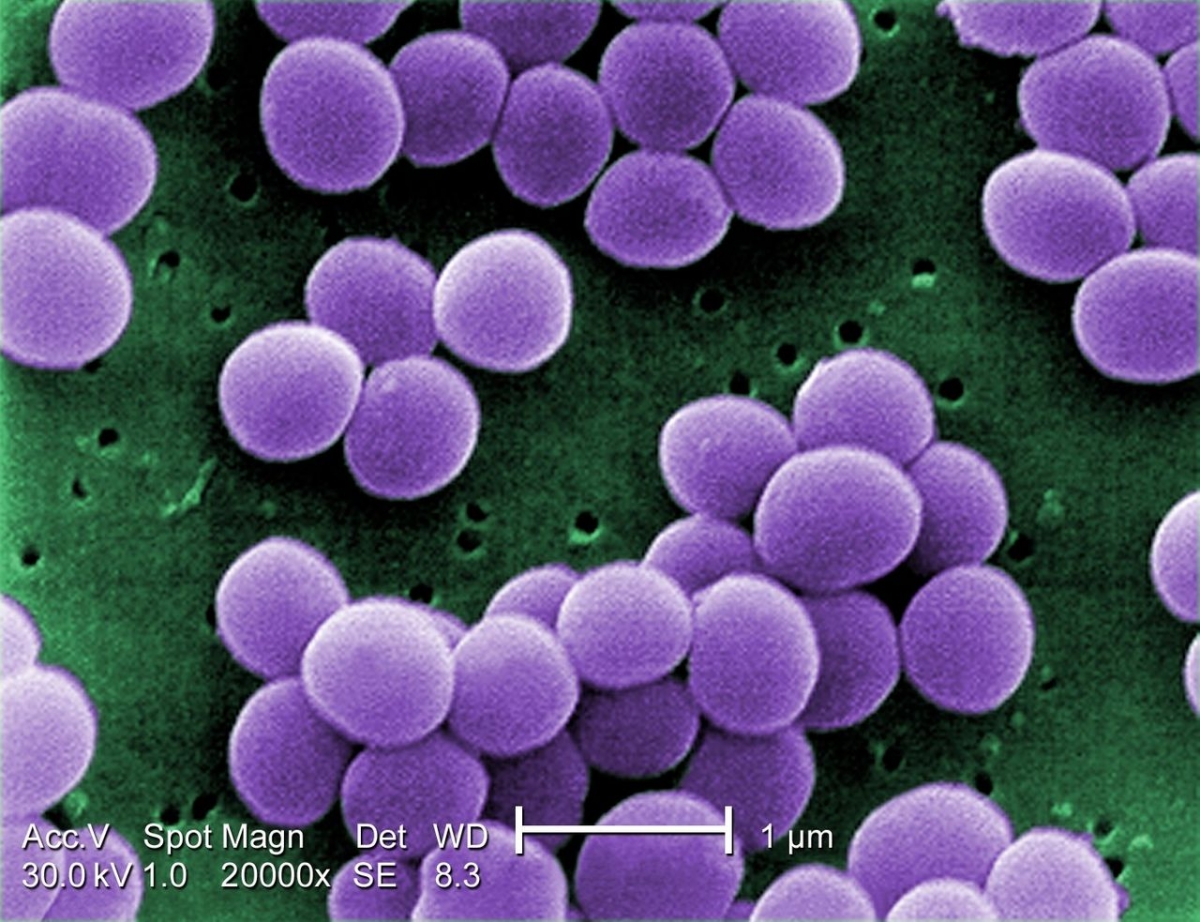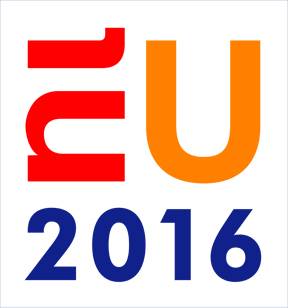 The EAHP EU Monitor is a regular round up of news relevant to hospital pharmacy in Europe.
The EAHP EU Monitor is a regular round up of news relevant to hospital pharmacy in Europe.
You can subscribe to receive the EAHP EU Monitor by email here.
.jpg) EAHP make 5 recommendations to the Heads of Medicines Agencies on medicines shortages
EAHP make 5 recommendations to the Heads of Medicines Agencies on medicines shortages
The EAHP has advised the European Heads of Medicines Agencies to work together to improve the information available about medicines shortages, assign responsibilities and learn from replicable actions on shortages taken by medicines regulators in other parts of the globe.
More information here.
 BRIEFING: EU Governments call for a more ambitious approach on antimicrobial resistance
BRIEFING: EU Governments call for a more ambitious approach on antimicrobial resistance
The EU’s 28 Member State Governments have reached an important set of new conclusions on the actions they must take together to help combat antimicrobial resistance (AMR).
The “Council conclusions on the next steps under a One Health approach to combat antimicrobial resistance” represent the culmination of intense efforts by the six-month Dutch Presidency of the Council of the European Union (EU) to forge a fresh political resolution on the topic.
“Council conclusions” on any topic give the European Commission a mandate to take initiatives secure in the knowledge that it represents the will of the EU’s member state Governments.
New EU AMR Action Plan required
A key highlight of the conclusions is the call from Governments for the development of a new EU Action Plan on antimicrobial resistance, that should go further than previous versions. The new Action Plan should include “measurable (clearly defined quantitative or qualitative) goals, benchmarks and effective measures to achieve these goals”, something lacking from the previous Action Plan.
National AMR Action Plans before mid-2017
The Conclusions also call for national AMR action plans to be in place in all EU countries before mid-2017. These should include measurable goals to reduce infections in humans and animals, and the use of antimicrobials in the human and veterinary sector. The Conclusions urge all EU Member States to include within their national AMR Action Plans measures to improve prescribing practices, and means of monitoring progress.
EU Guidelines on Prudent Use of Antimicrobials in human medicine
The European Commission is further instructed by the Conclusions to develop EU guidelines on prudent use of antimicrobials in human medicine in order to support national guidelines and recommendations.
Commenting on the 2016 Council Conclusions on AMR, Tajda Miharija Gala, EAHP Vice-President and lead spokesperson on antimicrobial resistance, said:
“EAHP has argued strongly of the necessity for a new EU Action Plan on AMR, but also one with more ‘teeth’ than the previous version. The Council’s recommendation for both a new Plan, and the inclusion of hard measures by which the Plan’s success can be judged, is therefore very welcome.
In respect to the creation of EU guidelines on prudent use of antimicrobials in human medicine, EAHP is already working with the European Centre for Disease Prevention and Control (ECDC) on this project. Any hospital pharmacist who would like to share good practices can contact me at tajda.gala@eahp.eu in order that they might be highlighted.”
Full Council Conclusions here.
 BRIEFING: Landmark Council Conclusions signal change ahead for European pharmaceutical system
BRIEFING: Landmark Council Conclusions signal change ahead for European pharmaceutical system
A busy Dutch Presidency of the EU Council has also published “conclusions on strengthening the balance in the pharmaceutical systems in the EU and its Member States”. The conclusions represent the collective view of the EU’s 28 national governments on where combined attention is required to improve the operation of the pharmaceutical system.
In a document that commentators are noting as being unusually forthright by EU Council standards, parts of the pharmaceutical industry are criticized for “inappropriate market behavior” and sub-optimal compliance with post marketing authorization regulatory obligations. In addition, the Council Conclusions state: “patients’ access to effective and affordable essential medicines is endangered by very high and unsustainable price levels.”
Other criticisms of the current operation of the European pharmaceutical system include expressed concerns about “orphanisation” of the pharmaceutical market i.e. exploitation of Orphan Drug Regulation to achieve higher prices. Greater transparency in the construction of early market authorization schemes is also called for.
Attention is also provided in the Conclusions to the problems experienced by smaller member states in providing access to medicines for patients, and the need for the a share of the profits from public-private research partnerships to be better directed (i.e. to further research).
The document suggests that the pharmaceutical system in the European Union “may be imbalanced”, in part due to “the lack of leverage of individual Member States in negotiations with industry”. Amongst the remedies suggested include increased forms of cooperation between Member States, such as in the fields of:
- joint procurement,
- “joint horizon scanning”,
- further cooperation in health technology assessment (HTA) – including potential mutual recognition, and
- collection and exchange of price data.
Overall, the missive from EU Governments identified a need for “further analysis to examine the current functioning of the pharmaceutical system in the EU” and gives the European Commission instructions to take a lead on this “as soon as possible”. The Conclusions specifically instruct the Commission to prepare a timetable and methodology for conducting this analysis “by the end of 2016”.
Read the full conclusions here.
 4 summer consultation exercises of interest to hospital pharmacy
4 summer consultation exercises of interest to hospital pharmacy
A number of consultations are currently open over the summer months that have relevance for the European hospital pharmacist community.
These include:
1. Innovative Medicines Initiative consultation on Advanced Therapy Medicinal Products (ATMPs)
The Innovative Medicines Initiative, which is a public-private partnership between the European Commission and the pharmaceutical industry, is consulting on a short paper outlining the challenges it perceives should be addressed to facilitate greater access for patients to ATMPs.
The consultation closes on 25th July 2016.
Consultation here.
2. European Medicines Agency (EMA) consultation on off label pharmacovigilance
EMA seeks views and input in respect to the collection and reporting of information on off-label use in pharmacovigilance. The paper published for consultation seeks to achieve greater clarification, and consistency of understanding, surrounding pharmacovigilance obligations and off label use of medicines.
The consultation closes on 29th July 2016.
Consultation here.
3. European Commission consultations on clinical trial regulation
As reported in the EAHP EU Monitor of 9 June 2016, the European Commission has opened 4 separate public consultations, each examining a distinct issue, or set of issues, related to implementation of EU Regulation 536/2014 (“the Clinical Trials Regulation”). These include:
- risk proportionate approaches to clinical trial regulation;
- the introduction of new summaries of clinical trials for lay persons;
- the definition of ‘Investigational Medicinal Products’ (IMPs) and ‘Auxiliary Medicinal Products’ (AMPs); and,
- ethical considerations for clinical trials conducted with minors.
The 4 consultations close on 31st August 2016.
More information here.
4. European Commission consultation on mHealth assessment guidelines
The European Commission is also conducting a consultation on the emerging draft of European guidelines on mHealth assessment.
The deadline for response is 31st August 2016.
More information here.
 Surveys and projects seeking hospital pharmacist input
Surveys and projects seeking hospital pharmacist input
The EAHP EU Monitor would like to make hospital pharmacists aware of a variety of relevant pan-European initiatives that currently seek inputs from practitioners.
These include:
1. Health professional views on a mobile App to report adverse drug reactions (Web-RADR)
A European research collaboration, called Web-RADR, is currently seeking the views of healthcare professionals on the development of a smartphone app to report adverse drug reactions and receive safety information about medicines.
The survey is anonymous and should take no more than 20 minutes to complete.
The survey is available in 7 languages here.
2. SIMPATHY survey on polypharmacy management across Europe
A pan-European research project on polypharmacy called ‘SIMPATHY’, is conducting a benchmarking survey on polypharmacy and adherence management in Europe. Led by the Scottish Executive Government, the project aims to etter understanding of best practices of polypharmacy and adherence management in elderly.
The survey is available in 3 languages here.
3. Multimorbidity case management training programmes
A European Union funded ‘Joint Action’ on chronic diseases (JA-CHRODIS) is investigating the status of case management training programmes for the management of multi-morbidity. Healthcare professionals from any European country are invited to share their expertise and experience in this area via completion of a questionnaire.
The project is being led by the Italian medicines agency, Agenzia Italiana del Farmaco (AIFA).
Questionnaire available here.
4. EPP eHealth survey on unmet needs in the healthcare sector
The EPP-eHealth project, funded under the Horizon 2020 programme, has recently launched an online survey. The purpose is to understand the needs of healthcare institutions in various European countries and assess the potential of usage of ICT solutions (Information and Communication Technologies) – especially technologies that allow management and transmission of information including the Internet, wireless networks, Bluetooth, cellular networks and satellite networks.
The feedback will be aggregated and will inform the next stage in the EPP eHealth project which is the development of a Joint Statement of Unmet Needs.
You are invited to participate in the survey. It should take you 10-15 minutes to complete. The survey has also been published in Spanish, Polish and Danish.

EJHP: July 2016 edition now published!
July’s edition of the EJHP includes an editorial on the use of paracetamol to treat pain as well as original articles on the use of automated medication systems to reduce error, and the implementation of a clinical pharmacist service in a mixed Norwegian ICU.
EJHP July 2016 edition here.
























 The EAHP EU Monitor is a regular round up of news relevant to hospital pharmacy in Europe.
The EAHP EU Monitor is a regular round up of news relevant to hospital pharmacy in Europe..jpg) EAHP make 5 recommendations to the Heads of Medicines Agencies on medicines shortages
EAHP make 5 recommendations to the Heads of Medicines Agencies on medicines shortages BRIEFING: EU Governments call for a more ambitious approach on antimicrobial resistance
BRIEFING: EU Governments call for a more ambitious approach on antimicrobial resistance BRIEFING: Landmark Council Conclusions signal change ahead for European pharmaceutical system
BRIEFING: Landmark Council Conclusions signal change ahead for European pharmaceutical system 4 summer consultation exercises of interest to hospital pharmacy
4 summer consultation exercises of interest to hospital pharmacy Surveys and projects seeking hospital pharmacist input
Surveys and projects seeking hospital pharmacist input
